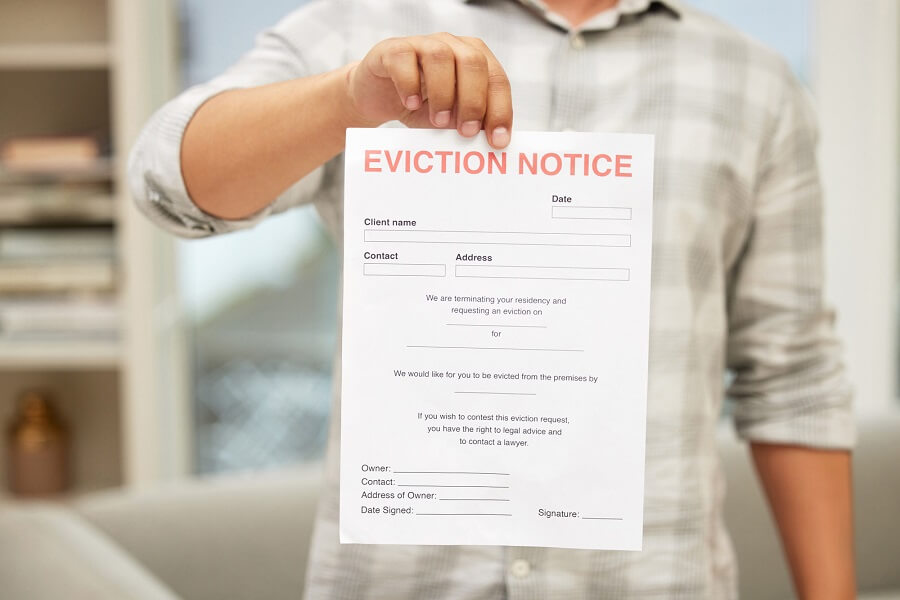Facing an eviction can be a daunting experience, but what comes after can be equally challenging – the stain of an eviction on your record. Whether you’re a tenant seeking a fresh start or a landlord aiming to rectify a past eviction decision, understanding how to get an eviction off your record is crucial. Exploring legal avenues and practical strategies to help you restore your rental history.
Understanding the Impact of an Eviction
An eviction on your record can have far-reaching consequences, impacting your ability to secure housing, loans, and even employment. However, it’s important to recognize that not all evictions are created equal. Some may be legitimate, while others could result from misunderstandings or unforeseen circumstances.
1. Researching State-Specific Laws
Navigating the eviction expungement process requires a solid understanding of the laws in your state. State regulations vary, and some jurisdictions may offer more lenient processes for removing evictions from records. Familiarize yourself with your state’s laws and regulations regarding eviction expungement to ensure you follow the correct procedures.
2. Review Your Rental History Report
The first step in rectifying an eviction on your record is to obtain and thoroughly review your rental history report. Identify any inaccuracies or discrepancies that may have contributed to the eviction entry. Rectifying these errors can significantly improve your chances of having the eviction removed.
3. Verify Compliance with Legal Requirements
Understanding the legal aspects of eviction records is paramount. Research your local jurisdiction’s regulations regarding the reporting and retention of eviction records. Some regions may have specific guidelines on how long an eviction can be reported or requirements for accuracy in reporting.
4. Negotiating with the Landlord
In some cases, reaching out to your former landlord may prove beneficial. If the eviction was a result of a misunderstanding, discuss the possibility of an amicable resolution. Landlords may be willing to retract the eviction or provide a letter explaining the circumstances surrounding the eviction, which can be useful during the expungement process.
5. Seek Expungement or Sealing
Depending on your jurisdiction, there may be provisions for expunging or sealing eviction records. Expungement involves completely erasing the eviction from your record while sealing restricts access to the information. Consult with a legal professional to explore whether these options are available and applicable to your situation.
6. Provide Strong Rental References
Building a solid rental history post-eviction is crucial for rehabilitation. Secure positive rental references from subsequent landlords, emphasizing your improved financial stability and responsible tenancy. A strong reference can counterbalance the negative impact of the eviction on your record.
7. Demonstrate Financial Stability
Showcasing your current financial stability can reassure potential landlords. Provide proof of steady income, employment, and a responsible budgeting plan. This proactive approach can help dispel concerns about past financial difficulties.
8. Craft a Letter of Explanation
Draft a sincere and concise letter of explanation detailing the circumstances surrounding the eviction. Take responsibility for any mistakes, express remorse, and outline the steps you’ve taken to rectify the situation. This letter can be submitted to potential landlords along with your rental application.
Are Evictions Public Record?
Yes, evictions are generally public records and can stay on your record for up to 7 years. However, they typically don’t appear on credit reports or directly impact credit scores. While they may not affect credit directly, they can still be accessed by landlords and potential employers when conducting background checks. It’s essential to address evictions promptly and explore options for expungement or sealing to mitigate their long-term impact on your record.
How Long Do Evictions Stay on your Record?
Evictions typically remain on your public record for a duration of up to seven years. It’s important to note that while they may not directly impact credit reports or credit scores, they can still be accessible to landlords and potential employers during background checks. It’s advisable to address evictions promptly and explore options such as expungement or sealing to mitigate their long-term effects on your record. Remember, seeking legal or financial advice from professionals is recommended for personalized guidance in such matters.
How Many Points does an Eviction Drop your Credit Score?
An eviction itself does not directly impact your credit score. However, if it involves unpaid rent or property damage, those financial obligations could affect your credit if the landlord reports them to a credit bureau. Unlike other debts, your rent payment history is not automatically reported. Therefore, the impact on your credit score depends on whether your landlord reports the delinquencies.

